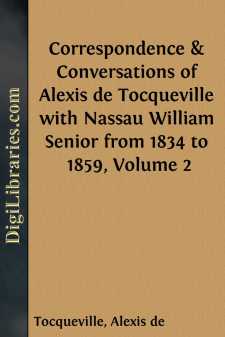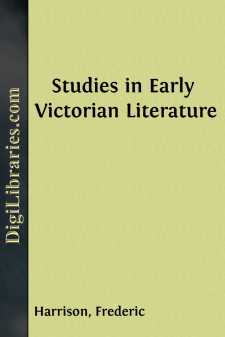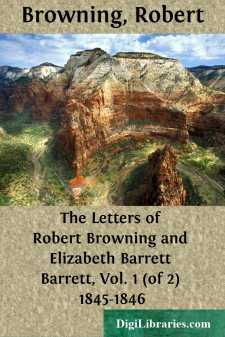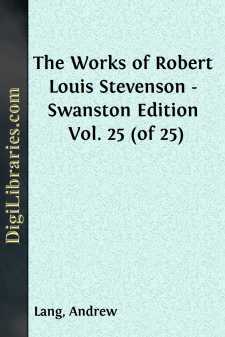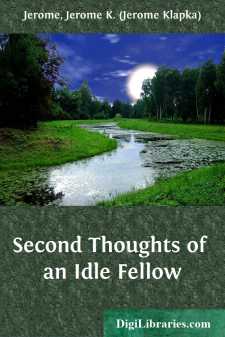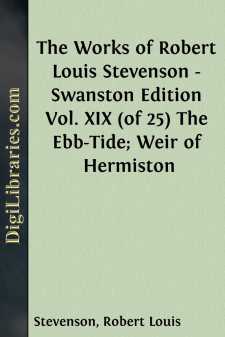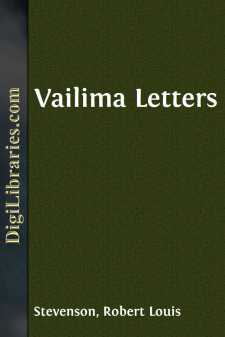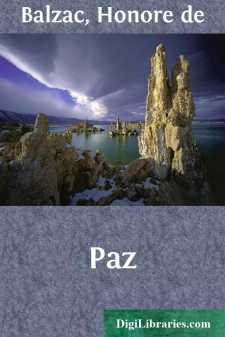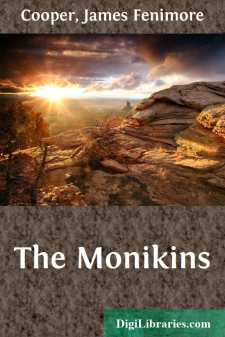Literary Collections
- American 84
- Ancient, Classical & Medieval 14
- Asian 1
- Australian & Oceanian 1
- Canadian 55
- Continental European 121
- English, Irish, Scottish, Welsh 179
- Essays 160
- General 24
- Letters 46
- Middle Eastern 1
Literary Collections Books
Sort by:
CONVERSATIONS PARIS, 1851-2. [The coup d'état took place on the 2nd, and Mr. Senior reached Paris on the 21st of December.—ED.] Paris, December 23, 1851.—I dined with Mrs. Grot and drank tea with the Tocquevilles. [1]'This,' said Tocqueville, 'is a new phase in our history. Every previous revolution has been made by a political party. This is the first time that the army has...
more...
CHARACTERISTICS OF VICTORIAN LITERATURE That which in England is conveniently described as the Victorian Age of literature has a character of its own, at once brilliant, diverse, and complex. It is an age peculiarly difficult to label in a phrase; but its copious and versatile gifts will make it memorable in the history of modern civilisation. The Victorian Age, it is true, has no Shakespeare or...
more...
by:
Robert Browning
THE LETTERS OF ROBERT BROWNING 1845-1846 New Cross, Hatcham, Surrey.[Post-mark, January 10, 1845.] I love your verses with all my heart, dear Miss Barrett,—and this is no off-hand complimentary letter that I shall write,—whatever else, no prompt matter-of-course recognition of your genius, and there a graceful and natural end of the thing. Since the day last week when I first read your poems, I...
more...
by:
Andrew Lang
Returning from Sydney at the end of October 1890, Stevenson and his wife at once took up their abode in the wooden four-roomed cottage, or “rough barrack,” as he calls it, which had been built for them in the clearing at Vailima during the months of their absence at Sydney and on their cruise in the Equator. Mr. Lloyd Osbourne in the meantime had started for England to wind up the family affairs at...
more...
CHAPTER I THE CHILDREN KNOCK AT THE DOOR Early in the morning through the autumnal mist two children of six or seven years are wending their way, hand in hand, along the garden-paths outside the village. The girl, evidently the elder of the two, carries a slate, school-books, and writing materials under her arm; the boy has a similar equipment, which he carries in an open gray linen bag slung across...
more...
ON THE ART OF MAKING UP ONE'S MIND "Now, which would you advise, dear? You see, with the red I shan't be able to wear my magenta hat." "Well then, why not have the grey?" "Yes—yes, I think the grey will be MORE useful." "It's a good material." "Yes, and it's a PRETTY grey. You know what I mean, dear; not a COMMON grey. Of course grey is always...
more...
CHAPTER I NIGHT ON THE BEACH Throughout the island world of the Pacific, scattered men of many European races, and from almost every grade of society, carry activity and disseminate disease. Some prosper, some vegetate. Some have mounted the steps of thrones and owned islands and navies. Others again must marry for a livelihood; a strapping, merry, chocolate-coloured dame supports them in sheer...
more...
MY DEAR COLVIN, - As I rode down last night about six, I saw a sight I must try to tell you of. In front of me, right over the top of the forest into which I was descending was a vast cloud. The front of it accurately represented the somewhat rugged, long-nosed, and beetle-browed profile of a man, crowned by a huge Kalmuck cap; the flesh part was of a heavenly pink, the cap, the moustache, the eyebrows...
more...
by:
Honore de Balzac
I In September, 1835, one of the richest heiresses of the faubourg Saint-Germain, Mademoiselle du Rouvre, the only daughter of the Marquis du Rouvre, married Comte Adam Mitgislas Laginski, a young Polish exile. We ask permission to write these Polish names as they are pronounced, to spare our readers the aspect of the fortifications of consonants by which the Slave language protects its...
more...
INTRODUCTION. It is not improbable that some of those who read this book, may feel a wish to know in what manner I became possessed of the manuscript. Such a desire is too just and natural to be thwarted, and the tale shall be told as briefly as possible. During the summer of 1828, while travelling among those valleys of Switzerland which lie between the two great ranges of the Alps, and in which both...
more...


